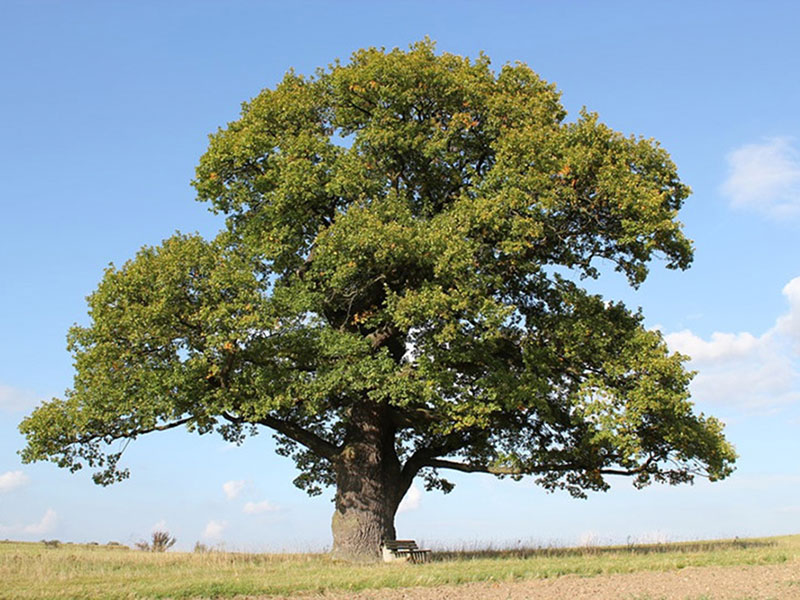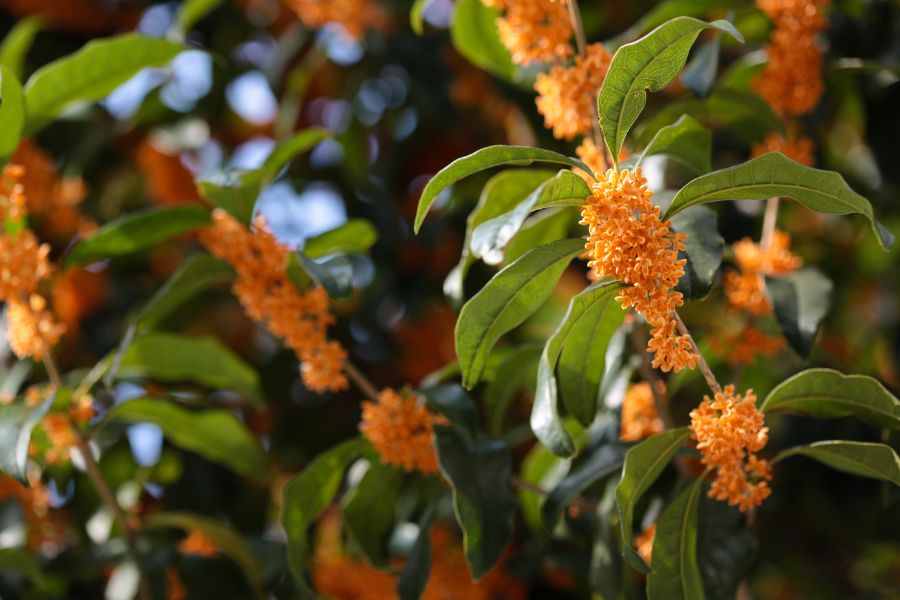The ancient belief holds that to achieve wealth and prosperity, one should plant four auspicious trees that bring good fortune and success to descendants. These trees are often found in the gardens of affluent families, and they are believed to bring positive energy and enhance one’s wealth and career.
1. Oak Tree

The Oak Tree: A Symbol of Strength, Good Luck, and Prosperity
The oak tree is a precious wood, known for its auspicious significance in feng shui. It symbolizes passing exams with flying colors and achieving success in one’s career. Thus, it has long been associated with intelligence, superiority, and triumph. Moreover, planting an oak tree at home is believed to ward off negative energy and bring prosperity to the household.
Additionally, oak is an extremely hard and long-lasting wood, making it highly valuable economically. The older the tree gets, the more prized it becomes. However, due to its massive size, it requires a spacious garden, and it should be planted at a safe distance from the house.
2. Viburnum
Viburnum, originally from China, is a highly prized ornamental plant. Its large and stunning flowers transform from emerald green to pristine white, resembling giant snowballs. If peonies are the epitome of richness and honor on earth, viburnum is their heavenly counterpart.
This ornamental tree can grow up to 3-4 meters tall, and with age, its flowers become larger and more magnificent. Over time, the tree resembles a precious wine jar, increasing its economic value. Viburnum not only adds a touch of freshness to your space but also holds profound feng shui significance, attracting wealth and luck while dispelling gossip and slander.
It symbolizes family reunion and happiness, and its presence in your garden is believed to bring good fortune and harmony to your household. Owning a viburnum tree is like possessing a treasure.
3. Mok Tree
The mok tree, with its sweet-scented flowers, holds a special place in ancient beliefs. It is considered a lucky tree in feng shui and is often planted in the yard or inside the house. Many families choose to plant mok trees in front of their homes, believing that it will attract good fortune and prosperity.
According to feng shui principles, planting two mok trees symmetrically by the front door is said to invite wealth and lead to a fulfilling life.

The Symbolism of Mok Trees in Feng Shui
4. Honeysuckle
Honeysuckle is another ancient and beloved ornamental plant among wealthy families. Its blooming season lasts remarkably long, from spring to autumn, and it even flourishes during the summer. The captivating pink and red clusters of flowers make it a highly decorative plant.
Moreover, honeysuckle is believed to attract wealth and prosperity to its owners. Thus, it is often planted in gardens to bring good fortune to the family. Its enchanting beauty and auspicious symbolism make honeysuckle a cherished addition to any garden.
“Don’t Let These Flower Vases Take Away Your Luck: A Guide to Avoiding Common Home Decor Mistakes”
Introducing the world of floral offerings with a twist – a guide to navigating the dos and don’ts of flower arrangements for ceremonial purposes. Uncover the hidden meanings behind these vibrant blooms and avoid potential pitfalls with a simple yet transformative twist. Prepare to immerse yourself in a journey of cultural significance and aesthetic appeal, where every petal unfolds a story and each arrangement speaks volumes.






































